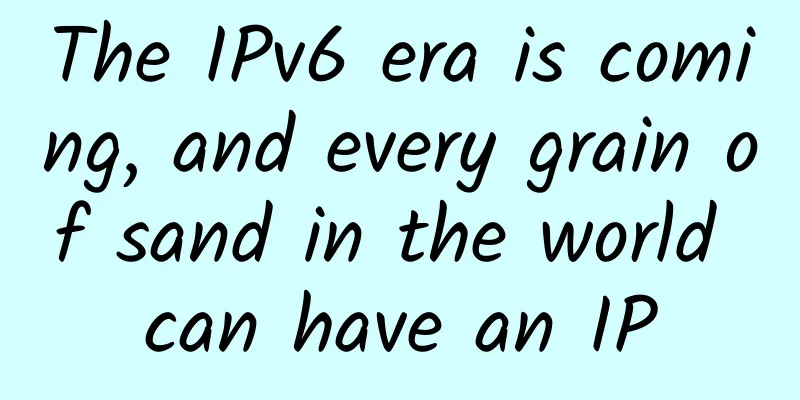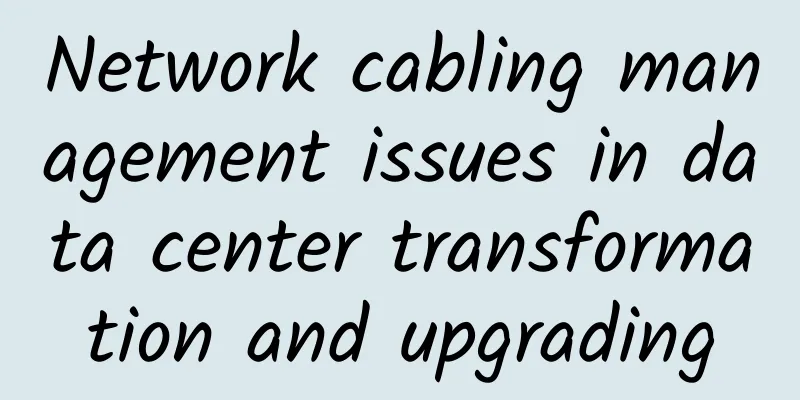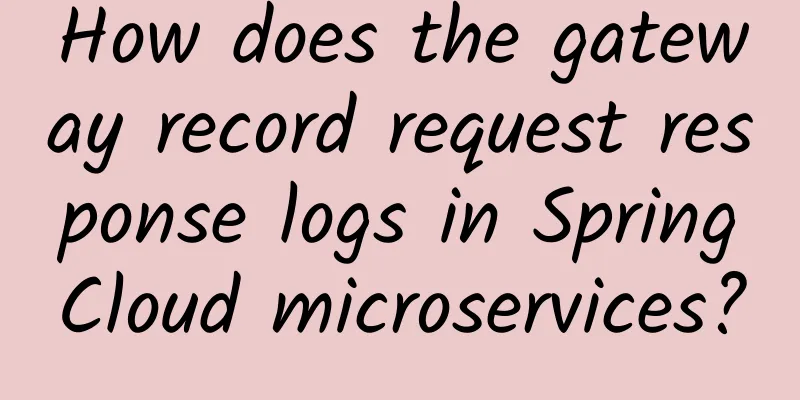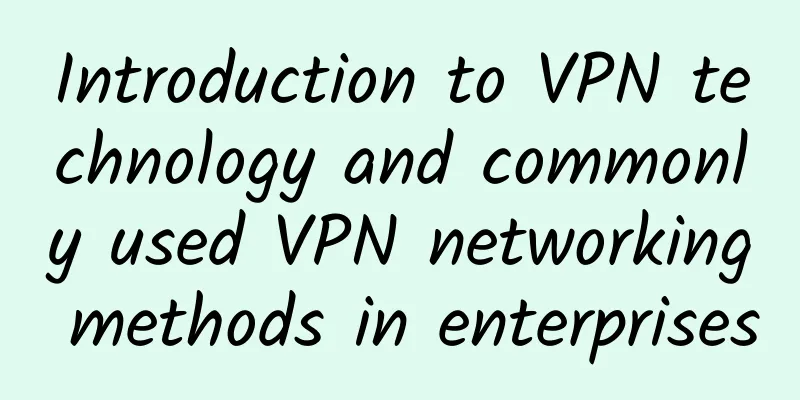The IPv6 era is coming, and every grain of sand in the world can have an IP

|
When it comes to IPv6, I think most people think of "Beiyou People" and "Shenyang Aerospace University IPv6" live TV broadcast. Yes, a large number of universities in our country support IPv6 networks, including Erpang’s alma mater. The picture below is a screenshot of an IPv6 resource site. I still remember the first time I used an IPv6 network.
Currently, many websites we are familiar with support IPv6 protocol access, such as Baidu, Google, etc. So what exactly is IPv6? Simply put, IPv6 is a network protocol. To explain IPv6, we must first talk about IPv4. We often hear the word "IP address", which usually refers to the IPv4 address, such as "111.199.123.41". When our network device is connected to the Internet, it will be assigned an address. This address is like the address in our lives. Other computers on the network can find you through this "address", and your computer can receive data packets. Of course, for the sender, only the address cannot send the data packet out. A protocol header is also needed to describe the current data packet being sent. For example, the protocol header records the length of the data in a data packet and other information. Like the IPv4 address "111.199.123.41" we just mentioned as an example, the IPv4 address is composed of 32 binary bits. At most, the number of available IPv4 addresses is only 2^32 (about 4.3 billion), but not all IPv4 addresses are available. Let’s look at some numbers: Wu Hequan, an academician of the Chinese Academy of Engineering, said:
In other words, one Chinese person has less than half an IP address. Moreover, each Internet user may not have only one network device. For example, Erpang has six computers and three mobile phones at home. How can he be given 0.45 IP addresses? It is obviously not enough. So what to do? In fact, not everyone can own an IP, or to be more precise, a public IP. Many people actually own an intranet IP. How to understand it? Here’s an unreliable analogy: The public IP is equivalent to the address of your school, and the intranet IP is equivalent to your dormitory number. Sometimes when the courier delivers a package, he will only deliver it to your school gate and ask you to pick it up yourself, instead of delivering it to your dormitory. This is because in the eyes of the courier, the addresses of all your classmates in the school are the same, so he only needs to deliver it to the school gate. The courier does not care which way you take from the dormitory to the school gate, whether you walk or ride a bike. In fact, the sending and receiving of network data packets is also the same. The data is sent to your school, and then the school has its own intranet routing, so the data can always be delivered to you. In this way, it is very likely that users in a school, a community, or a building are all using a public IP. When Tieba was very popular in the past, you could always see people complaining about network operators secretly assigning themselves intranet IPs instead of public IPs. In fact, this was caused by IP shortage. With the advent of the mobile Internet era, the number of Internet users continues to increase, and each Internet user owns many network devices, so IPv4 addresses are becoming increasingly insufficient. Therefore, everyone started to think about another network protocol - IPv6 protocol. At present, some network operators have allocated IPv6 addresses to users. You can use the IPv6 test tool to test it. The figure below is the result of Erpang's test. Obviously, the Beijing Unicom that Erpang uses does not support the IPv6 protocol yet. How is IPv6 different from IPv4? Compared with IPv4, the biggest advantage of IPv6 is that it can provide a nearly unlimited number of IP addresses. Remember that we said earlier that the address of the IPv4 protocol is 32 bits, so there are 2^32, or about 4.3 billion, IP addresses at most. The IP address of the IPv6 protocol is 128 bits, which is approximately 2^128 addresses. I can’t figure out the exact number, and my calculator has overflowed. Anyway, there are so many of them that it is more than enough to assign an IP address to every grain of sand in the world. What can IPv6 bring to our lives? The most significant impact is that we no longer have to worry about not having a public IP. The IPv4 addresses we use now are dynamic. What does this mean? Let me put it this way. Almost everyone's mobile phone has data traffic enabled. Whenever you turn on the data traffic, your mobile phone can access the Internet. At this time, the network operator (China Mobile, China Unicom, China Telecom, etc.) will assign you a temporary IP. When you have used up the network and turned off the data traffic, and then you change places or because there is no signal on the subway, the network is suddenly disconnected. When your mobile phone connects to the Internet again, your IP address will change. The dial-up Internet access many years ago (revealing my age, Erpang was born in the 1990s) was also like this. When you dialed up to connect to the Internet, you got an IP address, and when you dialed again, it is very likely that you have changed your IP. It is for this reason that when I was writing crawlers and was too lazy to use a proxy, I used my phone to open a hotspot for my computer to crawl, so I didn’t have to worry about my IP address being blocked (some larger websites will block IP addresses with high request frequencies for a short period of time, and put the IP address in a key observation database, and continue to block it if there is any abnormal behavior again). I usually don’t tell this secret to others, but I’ll tell you who liked my post. 1. The era of the Internet of Things will arrive one day I believe many people have such troubles - they can't find their keys, socks, campus cards, or work cards. I often encounter such things. When I can't find my socks, what I want to do most is to call my socks and ask where they are now. At this stage, this sounds unrealistic, but when every grain of sand can have an IP, connecting everything will not be a far-fetched thing. When each device has an IP address, technically speaking (putting aside other factors), we can completely use our mobile phones to control each of our devices through the public network. 2. Online fraud can be regulated After the advent of the IPv6 era, it is technically possible to implement the real-name system on the Internet, and each person's device can have its own independent IP. In this case, online fraud and various illegal and criminal activities are more easily regulated. Of course, this is only feasible from a technical perspective. If it is really to be implemented, it will still have to wait until various regulatory regulations and policies are introduced, which should be a matter of several years. 3. Big data knows you better "User portrait", "Thousands of faces for each person", and "Personalized recommendations" are actually some applications of big data technology. When your device has an independent IP, it will be easier for companies to obtain your timeline and know what you did and when. Nowadays, when companies create user portraits, it is basically based on the user's cuid, which is the user's personal identity ID. It may be the mobile phone number you used when registering an application, or it may be some of your special information, such as WeChat account, email address, etc. At present, the user information between enterprises cannot be well connected and merged, but even so, many people still feel that their privacy has been violated. Just after searching a certain keyword on a certain platform, another platform recommends related products to you. Just imagine boldly, when IPv6 becomes popular, will our privacy become even less valuable? With the development of technology, our lives will become more and more convenient, and our privacy will become less and less valuable. Similarly, as basic computer technology matures, disciplines such as artificial intelligence, which are currently in the early stages of application, will also be able to show their capabilities. In short, the development of science and technology and the progress of the times have both advantages and disadvantages, and it is up to us to weigh them. If we cannot stop this change, then we should accept it calmly. |
<<: What hurdles do 5G mobile phones need to overcome before they can be launched on the market?
>>: CDN price war ends, with Wangsu, Alibaba and Tencent taking over the market
Recommend
FirstByte: Russian KVM monthly payment starts from 55 rubles (≈ RMB 4.78 yuan)
FirstByte is a regular Russian hosting company fo...
Yecaoyun Hong Kong High Defense VPS, starting from 122 yuan/month-dual core/2GB/15G SSD/5M/50G defense
Yecaoyun recently launched a new high-defense VPS...
Megalayer: Hybrid cloud servers/high-defense servers up to 60% off, Hong Kong dedicated servers from 399 yuan/month, VPS up to 50% off
Megalayer released a promotional plan for March, ...
GaussDB T database cloud service officially launched on Huawei Cloud with Kunpeng computing power
Recently, the cloud service of GaussDB T, the wor...
The AI dual competitions will enter the final round in August. Huawei invites you to witness the birth of the champions of the DIGIX Geek Artificial Intelligence Campus Innovation Competition and the Algorithm Elite Competition!
[51CTO.com original article] This summer, two eve...
From a technical perspective, the development of 5G industrialization will become clear after reading this article
1. Market demand Mobile Internet is mainly orient...
Empowering online learning, H3C University won the "Bio-Best Ecological Platform Application Award"
On November 19, 2020, the 12th CEFE China Enterpr...
Three lives and all things go hand in hand with wisdom | Beijing Unicom and Huawei jointly release the results of 5G Capital innovation project
[Shanghai, China, November 12, 2020] During the 2...
A 10,000-word article interprets the operators' fight for 5G: a battle of three kingdoms in financial strength
For a long time, the development of high-tech com...
TripodCloud: US CN2 GIA line VPS with large hard disk $40.99/half year onwards
TripodCloud (Yunding Network) is a relatively low...
802.11ax emerges, what does it bring to wireless?
In 2017, Broadcom, Qualcomm, Marvell and other ma...
Three ways 5G will change manufacturing
According to RT Insights, the Manufacturing Insti...
ByteHosting: €3.99/month KVM-4GB/30GB/1TB/Frankfurt, Germany
ByteHosting is a foreign hosting company establis...
To cope with the global food crisis, AI, 5G and machine vision join forces to "raise fish"
Today, the global food challenge has become a rea...
ShockHosting configuration upgrade 50% off, $5/month-2G/300GB/1TB/Los Angeles data center
The tribe has shared news about ShockHosting seve...




![[Black Friday] edgeNAT: 20% off for monthly VPS and 30% off for annual VPS, top up 500 yuan and get 100 yuan free](/upload/images/67cac24339ff5.webp)




